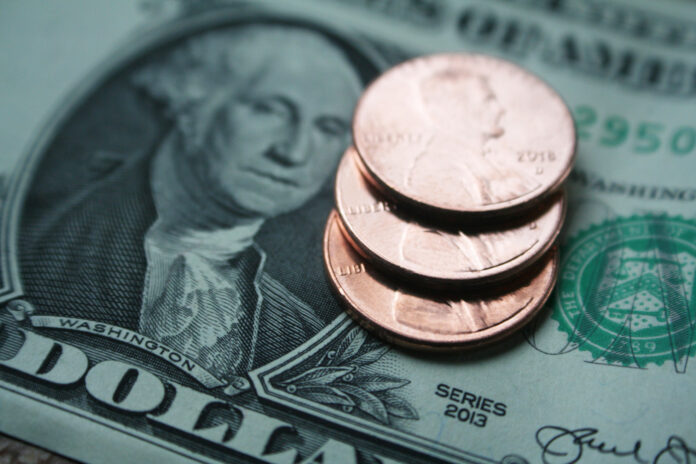On November 3, Floridians voted on a proposed constitutional amendment that would enact a $15 minimum wage.
A “yes” vote supported the initiative to increase the state’s minimum wage incrementally, ultimately reaching $15 per hour in September 2026. A “no” opposed the incremental increase thus keeping the existing minimum wage of $8.56 per hour as of 2020.
According to the Miami Herald, as of November 3, 64.48 percent of Florida’s active registered voters had already cast mail-in or early votes. After election day, the number of votes for Donald Trump and Joe Biden combined was 10,965,776. Despite the president winning the majority of votes in Florida, 6,391,753 (60.82 percent of voting Floridians) residents of the Sunshine State voted “yes” on Florida Amendment 2.
Last year, 21 states passed measures to increase their minimum wage and the coronavirus pandemic and accompanying financial struggles many low-wage workers have been experiencing creates the perfect storm for Democratic lawmakers to push the agenda on minimum wage hikes.
This is showcased by the unpredicted success of Florida Amendment 2, in a traditionally red state with Republican Gov. Ron DeSantis publicly opposing the minimum wage hike, two Republican Senators, and a majority Republican state legislature. With Donald Trump securing more than half of the state’s votes, approximately one million Florida voters cast their vote for the incumbent president while also voting, “yes” on Florida Amendment 2.
Minimum wage hikes have always been a favorite in the Democratic playbook thus, seeing voters who would vote for a Republican candidate also voting for the minimum wage hike is initially confusing. However, a recent Pew Research Center study poll shows that 67 percent of Americans support raising the minimum wage to $15 an hour.
Much of this shift is attributable to the COVID-19 pandemic. Low-wage workers were heaviest hit by the pandemic-related recession. According to WalletHub, Florida experienced a whopping 1,880.72 percent change in unemployment claims since the start of the COVID-19 crisis in comparison to last year.
As coronavirus has highlighted the issues of poverty and food insecurity across the nation, minimum wage hikes are not the way to mitigate this problem. Upon first glance, it may seem as if raising the minimum wage would be the first step in solving the damage brought by the pandemic. However, a deeper look will tell us otherwise.
A recent study by the Congressional Budget Office, titled “The Effects on Employment and Family Income of Increasing the Federal Minimum Wage,” examines how increasing the federal minimum wage to $10, $12, or $15 per hour by 20025 would affect employment and family outcome.
According to the Congressional Budget Office study, the obvious outcome will occur, millions of workers would see their wages rise. It’s predicted that the $15 per week minimum wage option would boost the wages of 17 million workers who would earn less than $15 per hour. The $12 option would increase wages for 5 million workers who would earn less than $12 per hour, and the $10 option would raise wages for 1.5 million workers who would earn less than $10 per hour, the study concludes.
However, each option has its ominous figures as well. If a $15 per week minimum wage option were to occur, 1.3 million workers would become jobless, the study estimates. If a $12 per week minimum wage were to occur, 3 million workers would become jobless. However, the $10 per hour option would have little effect on employment, according to the study.
Overall, it is clear that although minimum wage hikes may aid some individuals and families, it will also increase unemployment in a time when no state can afford any increase in unemployment claims.
Minimum wage hikes have a myriad of harmful unintended consequences to all businesses, especially small businesses, the backbone of the American economy. Minimum wage increases in Florida will force businesses to reallocate their costs to cover the increase in employees’ wages ultimately forcing them to alter spending elsewhere to offset their increased costs of business. More times than not, this results in reduced hiring, a reduction in work hours, and increasing prices for consumers. This is often the difference between staying open and bankruptcy for small businesses that already have marginal profits.
A 2007 study from economists at the University of California-Irvine and the Federal Reserve Board examined the body of work on the subject and found 85 percent of the studies they considered credible demonstrate minimum wage laws cause job losses for less-skilled employees.
Furthermore, a 2010 study done by economists at Cornell University and American University found no reduction in poverty in the 28 states that raised their minimum wage laws from 2003 to 2007.
While attempts to create a minimum standard of living and protecting Florida’s workers in a pandemic-world is laudable, the overall economic effects of passing this constitutional amendment will do more harm than good in a time when the Sunshine State does not need any more economic hardships.











